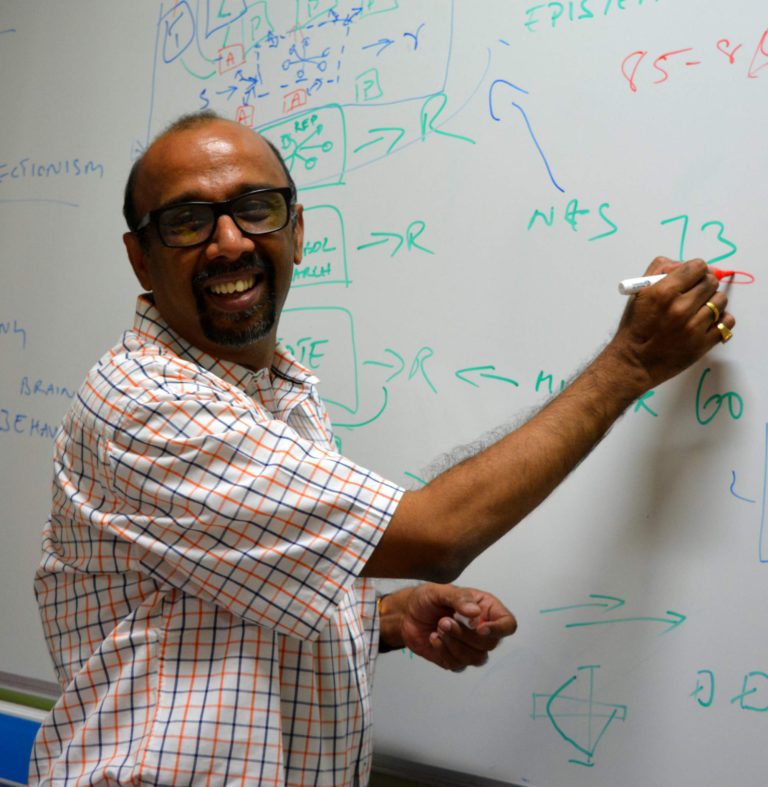
Professor, HBCSE
sanjay@hbcse.tifr.res.in
Bio
My research background is cognitive science. I currently investigate how interacting with external representations and artifacts (particularly new computational media such as manipulable simulations) change the human imagination and motivation systems. In particular, I am interested in how such interaction processes lead to:
- learning of new science and engineering concepts
- new discoveries and innovations
- new motivations
- wider socio-technical systems
Within cognitive science, this research area is a central component of Distributed Cognition theory, which argues that humans' cognitive advantage is driven by the brain's ability to generate and incorporate novel artifacts and representations. These artifacts and representations in turn lead to the creation of new socio-technical environments, where people interact with these structures to solve highly complex problems that cannot be solved by any single individual (such as climate change, pandemics, and space travel).
Research projects in the LSR group focus on designing and testing new learning and discovery environments, from the theoretical perspectives of distributed and embodied cognition. These theoretical frameworks also help analyse and understand the cognitive interactions that emerge in such novel environments.
This applied research program is highly interdisciplinary, integrating questions, concepts, and methods from Philosophy, Psychology, Cognitive Neuroscience, Human-Computer Interaction, and Education.
A central focus of my theoretical research is developing a mechanism account of Distributed Cognition, based on cognitive/neural processes explored by recent Embodied and Enactive Cognition theories. A related research focus is exploring how emerging modeling practices -- such as building/making physical models and machine learning models -- lead to learning, discovery, and innovation.
